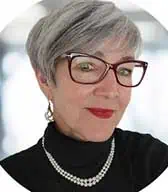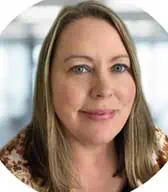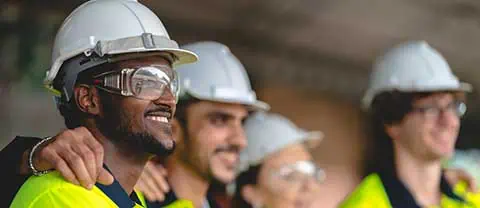

Meet SCS Engineers brownfields experts, Candy Elliott, PG, and Melissa Schick, at our Booth at the Southeast Brownfields Conference and EPA New Grantee Workshop, September 21-22, in Pelham, Alabama.


Alabama Brownfields Association (ALBFA ) is hosting this annual event which includes a one-day technical conference plus EPA Region IV holding its New Grantee Workshop across two half-days. The conference is a forum for environmental professionals, state environmental agencies, tribes, local governments, and community stakeholders interested in brownfield redevelopment. Event registrants are able to attend a reception held on the evening of the 21st.
Click for more conference details and registration information
We hope to see you there!
In her paper, Utilizing Multiphase Flow Modeling to Estimate CO2 Solution Storage Efficiency and Sequestration Project Size, author Kacey Garber discusses how developing an understanding of CO2 storage efficiency and CO2 capacity estimates for a Carbon Capture and Storage (CCS) project will help you properly scope your project location and therefore maximize the benefits CCS has to offer.
The storage component of a CCS project requires a Class VI Underground Injection Control permit to inject supercritical CO2. These permits require multiphase flow modeling to delineate both the extent of the injected supercritical CO2 and areas that exceed a critical pressure threshold as a result of injection. SCS has found this modeling to also be valuable during project scoping to provide a sense of the total CO2 storage capacity for a given project.
Kacey walks through a case study that utilized a multiphase flow model to investigate what operational parameters would lead to the most efficient use of pore space for a CCS project in development. This included examining the effects of different injection rates, durations, and locations and investigating multi-injection well scenarios. This case study ultimately shows that a multiphase flow model will help you meet the requirements for your Class VI injection well permit application; it will also help you right-size your CCS project during the planning phase. Incorporating project-specific considerations into the model will help you identify operational conditions ideal for maximizing CO2 storage efficiency.
Additional Resources:
Capturing carbon and injecting it into a carbon sequestration well, also called a Class VI Well, is an EPA-approved technology. Manufacturers and industries are considering using carbon sequestration to reduce greenhouse gas emissions (CO2). Often, the public is concerned that carbon injection wells could contaminate underground drinking water — a legitimate concern, given today’s headlines. In this environmental engineering blog, we’ll describe the two ways underground drinking water could be contaminated and how to prevent it.
Contamination can occur if the CO2 can migrate up the well bore into the aquifer anytime after injection. The second instance is if pressure forces the brine from the injection zone into the aquifer.
Environmental engineering teams, which include professional geologists, hydrogeologists, and geoscience experts, take steps and provide well-operators guidance to protect drinking water sources, including calculating the Area of Review (AOR) around the injection well and computational modeling to understand how the pressures can build up during injection to create unsafe conditions.
Armed with expert knowledge and more modeling accuracy, operators can prevent contamination, extend the life of carbon sequestration wells, and address public concerns.
Dr. Charles Hostetler explains in the SCS educational video how accurately calculating the AOR and understanding critical pressure work together so companies can confidently use carbon capture and sequestration to reduce greenhouse gas emissions safely.
Click to watch
At SCS, we’re always available to answer questions – contact SCS at or find an office near you. Human Resources would like to hear from you if you desire a rewarding career working with companies to help them run efficiently and cleaner.

Additional Carbon Sequestration Resources:
Hear from SCS Engineers experts at the Green California Schools & Higher Education Summit and Expo, October 17, in Pasadena. The summit will explore “California Continuing the March for Decarbonization.”
This year’s education program will conduct extensive outreach and surveying to identify what matters most to participants.
SCS experts are presenting, including:
This session will provide information on the types of food waste that is generated in schools, and the methods that schools can use to reduce the amount of wasted food and to recover and recycle food scraps. The information is based on experience at school districts and community colleges in California.
Be part of the community that leads the way in making California’s schools and higher education sector’s among the leaders driving the State’s decarbonization efforts. Hear from thought leaders and content experts in design and construction as well as experts in maintenance and operations from campuses across the state. Learn about the challenges and solutions as the State drives the transportation sector toward 100% renewables.
Click for more conference details and registration information. We hope to see you there!
SCS Engineers is a proud sponsor of the New Mexico Recycling & Solid Waste Conference, September 19-20, at the Sheraton Albuquerque Uptown.
The conference, themed “The Value of Materials & Relationships,” will include plenary sessions, breakout sessions, an awards ceremony, exhibitors, networking opportunities and more! The conference is jointly hosted by The New Mexico Recycling Coalition and the New Mexico SWANA Roadrunner Chapter, and will cover such topics as recycling, composting, landfill operations, transfer stations, and much more!
SCS professionals are presenting at the conference, including
Find out more and register today!
We hope to see you there!
Join SCS Engineers professionals at the Illinois Manufacturer’s Association’s Environment & Energy Conference on October 18 at Governors State University in University Park, IL (Chicago south suburbs).
The conference is taking shape. Check back as more details are available.
It’s time for the California Land Recycling Conference (CALRC) in Carson, California, September 26-28. The Center for Creative Land Recycling (CCLR) is hosting the conference, and this year’s event theme is “People, Partnerships, Progress.” SCS Engineers is a Visionary Sponsor and will have our experts presenting at the conference and discussing best practices for those in California and nationwide. Please stop by our booth to discuss the various land recycling possibilities for your site, funding, and permitting.
We are exceptionally proud of our relationship with CCLR and our clients who are winning Phoenix, EBJ, and other awards for their valuable contributions to their communities across all 50 states.
Achieving environmental justice means taking a sustainable, holistic approach to site remediation and land recycling. One that meets each party’s social, environmental, and economic goals. These experts can help; they’ve been in the business of sustainability for decades and are always open to knowledge sharing about funding, permitting, and remediation processes that will keep your project on track.

Tuesday, September 26th at 3:15 PM in the Community Hall Section A
With numerous approaches and examples of pilot studies, innovative technologies, and work done to execute alternatives to excavation, this session will help you overcome the practical challenges of sustainable remediation. With an overview of conducting pilot tests and examples of innovative technologies, this session will help project managers and site owners take the next steps in bringing sustainable solutions to clean up contaminated sites and answer the question, can in-situ technologies be used to avoid costly excavation and disposal?

Wednesday, September 27th at 10:30 am in the Community Hall Section A
We aim to get your remediation or brownfields project done sustainably, meeting economic and environmental goals such as the mission of the Water Boards to preserve the quality of California’s water resources and drinking water to protect the environment, public health, and beneficial uses. Join Jim and company to learn the best practices.
This year’s National Brownfields Conference in Detroit, Michigan, was notable. The evening before the conference began, the United States Environmental Protection Agency (USEPA) hosted an ‘Environmental Justice’ caucus in which over 150 people from both the public and private sectors came together to learn more about what Environmental Justice is and how it informs our work in economic development efforts.
USEPA defines Environmental Justice (often called ‘EJ’) as “the fair treatment and meaningful involvement of all people regardless of race, color, national origin, or income, with respect to the development, implementation, and enforcement of environmental laws, regulations, and policies.” We’ll achieve this goal when everyone enjoys the same degree of protection from environmental and health hazards and equal access to the decision-making process to have a healthy environment to live, learn, and work.
Distilled to its core, EJ is a call to action for all individuals and entities engaged in helping sustain and grow their communities. It posits that multiple demographics (including but not limited to people of color, inhabitants of rural areas, and people with less access to education and well-paying jobs) are disproportionately subject to harmful impacts from exposure to toxins and pollutants. Accordingly, it is incumbent upon those engaged with those populations to pay heed to find ways to mitigate or reduce those exposures.
EPA formally established the Office of Environmental Justice and External Civil Rights on October 6, 2022, and since that time, has engaged over 200 people across the agency to perform tasks specifically addressing EJ, including “processing grant applications from communities with environmental justice concerns, reaching out to residents to understand their concerns, and enforcing civil rights.” The EPA also established the Environmental Justice Thriving Communities Grantmaking (EJ TCGM) program in direct response to two Executive Orders issued by the Biden administration (EO 14008 and 13985) and will soon award ~$550 million to 11 distinct entities (which must be community-based nonprofits or partnerships between community-based nonprofits and either Tribal government or institutions of higher education) to spearhead more inclusive and easily accessible resources/support for communities seeking EPA funding to address EJ concerns.
EPA also established 16 technical assistance centers across the nation under the EJ Thriving Communities Technical Assistance Centers Program (EJ TCTAC), aimed at “providing technical assistance, training, and related support to communities with environmental justice concerns and their partners. The services provided will include training and assistance on writing grant proposals, navigating federal systems such as Grants.gov and SAM.gov, effectively managing grant funds, community engagement, meeting facilitation, and translation and interpretation services for limited English-speaking participants.”
Furthermore, the 2022 Inflation Reduction Act created the Environmental and Climate Justice Block Grant program in section 138 of the Clean Air Act (CAA). It provided EPA with $2.8 billion in grant funding for the program for projects to benefit communities with environmental justice concerns.
All told billions of dollars are currently available to communities that seek to spur environmental cleanup and revitalization efforts. SCS specializes in helping communities connect with this funding (even providing in-house Brownfields grant writing services) and has a proven track record of forming successful partnerships which result in timely and meaningful rejuvenation projects.
Two of the projects SCS teamed on this past year are awardees of the EPA’s prestigious 2023 Phoenix Award. The first of such projects, performed in EPA Region 6, involved the restoration of the historic First National Bank Building in downtown Oklahoma City, OK. This project created a mixed-use space, including apartments in the heart of the bustling business district, to help revive a struggling downtown and create jobs for residents. The second project, performed in EPA Region 9, provided affordable housing in San Diego, CA, and included upgrades to storm drains, water and sewer lines, underground powerlines, and streetscape improvements, significantly enhancing area infrastructure.
In both these projects and countless other projects performed under federal and state Brownfields programs, SCS is a trusted partner providing technical expertise and conscientious approaches to community engagement and planning that align with EJ protocols. SCS is a Foundational Member and Advisor of the Center for Creative Land Recycling (CCLR), which aims to turn abandoned land into thriving spaces that serve communities meaningfully.
This year’s Brownfields Conference theme was “Sustainable Communities Start Here,” in sync with SCS’s long culture and mission of achieving sustainability through holistic processes. The most successful remediation projects are when all stakeholders have a voice and redevelopment efforts are thoughtfully, creatively, and deliberately planned and implemented.
Additional Resources:

Worker Safety: “Focusing on worker safety can transform an entire organization and dramatically improve culture, quality, productivity, communication, and ultimately profits.” Paul O’Neill made this statement in 1987 when he took over as Chairman and CEO of Alcoa (Aluminum Company). When Paul finished his term as CEO twelve years later, Alcoa’s market value had increased from $3 billion to $27.5 billion, with net income rising from $200 million to just under $1.5 billion.
Paul joined Alcoa when it was in a state of decline, with failed product lines and an employee injury rate of 1.86 lost work days per 100 workers. At his first board meeting, he told investors he intended to make Alcoa the safest company in America and prioritize safety over profit. Many investors panicked and sold their stock, much to their later chagrin. He stated that Alcoa’s “…safety record is better than the general American workforce, especially considering that our employees work with metals that are 1500 degrees and machines that can rip a man’s arm off…” Paul focused on one key parameter to measure success, the number of daily safety issues. He commented on his strategy: “I knew I had to transform Alcoa. But you can’t order people to change. So I decided I was going to start by focusing on one thing. If I could start disrupting the habits around one thing, it would spread throughout the entire company.”
When a worker was hurt, Paul observed that they missed work for days to weeks to months, hampering productivity. His emphasis on having workers prioritize safety over efficiency paid off big time.
Remember the 1.86 lost work days statistic? He dropped it to 0.2 lost work days per 100 workers. By introducing a method of following safety procedures before every task, he implemented protocols for accountability, such as on-the-job work instructions, safety checklists, task management, and safety leaderboards. The process instilled a sense of a progressive and transformative safety culture in the workers. Only one year later, Alcoa reached a new record for its profits.
According to WorkClout, Paul’s influence not only increased Alcoa’s safety, productivity, and profit while positively affecting manufacturing. The number of annual fatal injuries in the manufacturing sector declined from 420 in 2003, to a low of 303 in 2017, and currently stands at 383 in 2021 (Bureau of Labor Statistics most recent data).
So how can you put proactive health and safety at the forefront of your business? Focus on non-monetary things, such as health and safety. Having workers engaged in safety affects everything down the supply chain. Try implementing these practical and positive recommendations in your workplace:

About the Author: Jed Douglas is a Certified Industrial Hygienist, a Certified Safety Professional, and a Professional Geologist, licensed in California, Oregon, Washington, and Arizona.
Mr. Douglas specializes in the health and safety of workforces. He performs indoor air quality investigations for chemical, physical, and biological contaminants, sound and noise studies, hearing protection program, ergonomic evaluation, Occupational Safety and Health Administration (OSHA) program compliance, chemical usage evaluation, global harmonization system implementation, confined space evaluation, lock-out/tag-out review, security auditing, emergency response plans and evacuation drills, respiratory protection program and fit testing, and training in various safety protocol. Reach out to Jed here or on LinkedIn.
Many companies are exploring carbon capture and sequestration (CCS) to help reach greenhouse gas emission reduction goals. Protecting aquifers is a primary concern for the public to safeguard underground drinking water sources. Starting with near-surface background environmental monitoring is the first step to addressing public concerns and maintaining safety.
A comprehensive monitoring plan helps preserve the safest conditions and can save time and expense during injection and post-closure care. This SCS Engineers webinar explains the concepts, how it protects aquifers, and what to look for in a background monitoring plan. Establishing baseline conditions before injection is the first step. Starting immediately after submitting the Class VI permit application, during the regulatory technical review period provides the time to take these important baseline measurements.
